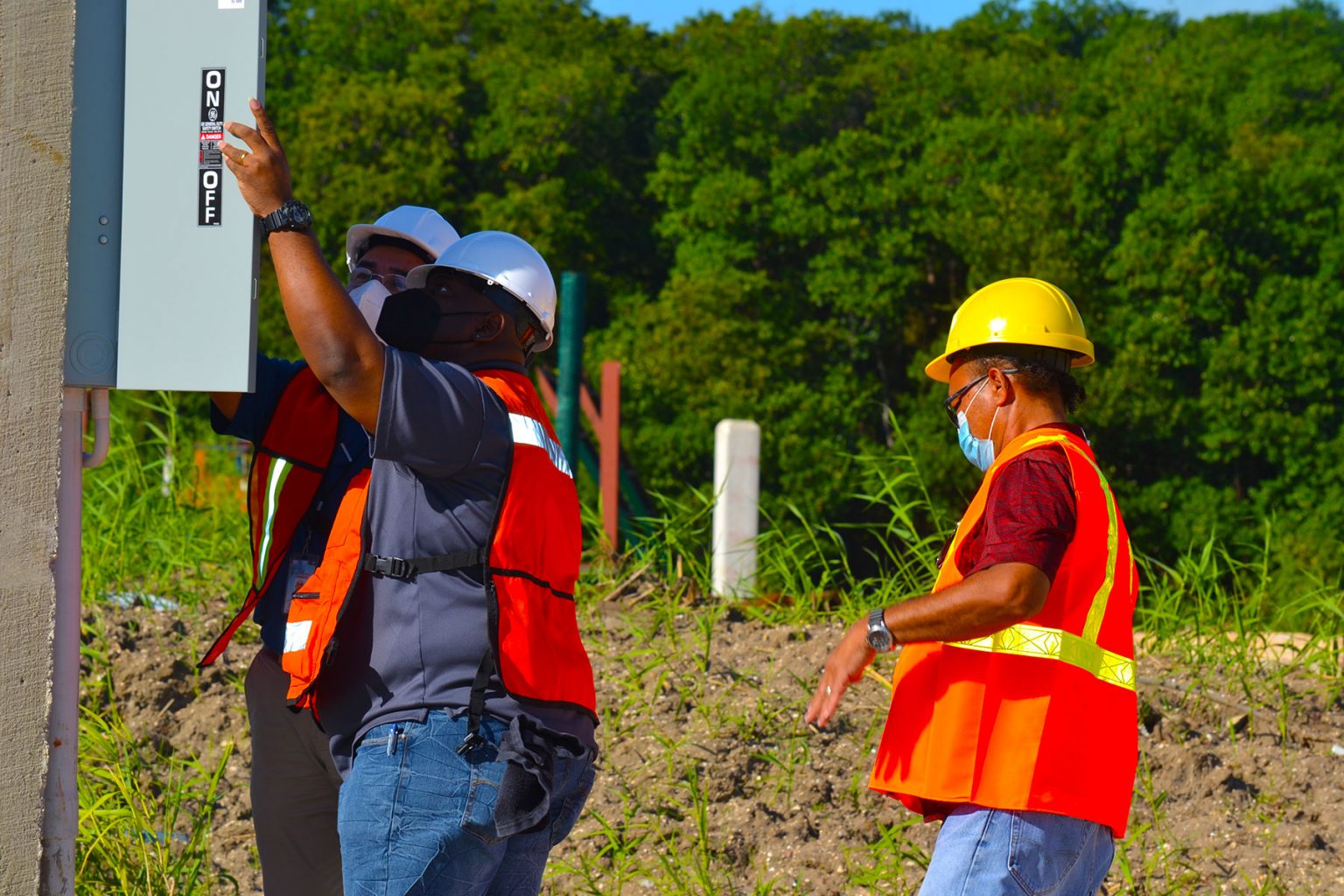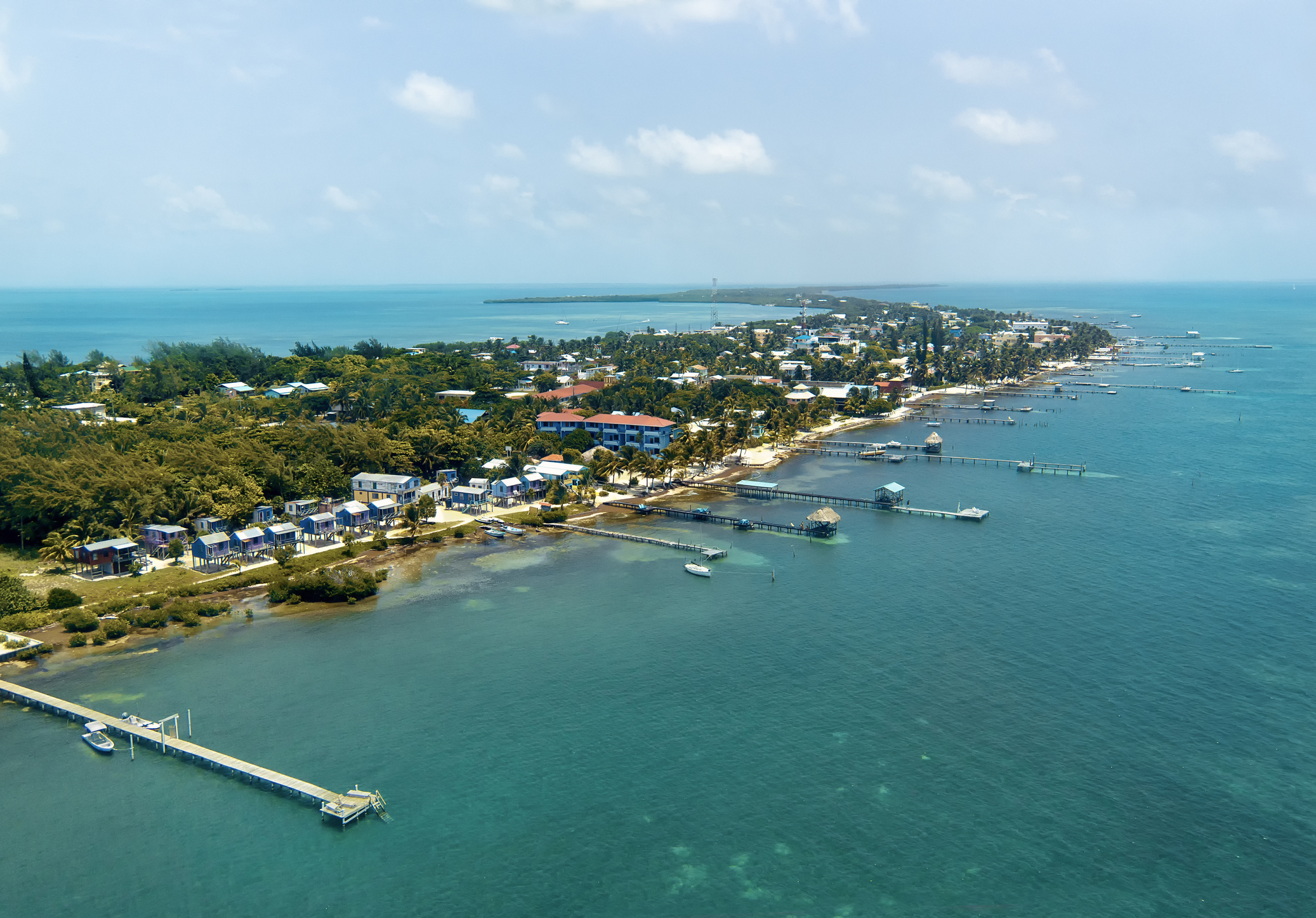Off Grid Living Belize: Imagine waking to the sounds of the jungle, the sun warming your face in a home built by your own hands, completely self-sufficient and surrounded by breathtaking natural beauty. This isn’t a dream; it’s a reality waiting to be embraced. This guide delves into the practicalities and possibilities of creating your own off-grid paradise in Belize, from navigating the legal landscape and building your sustainable home to understanding the unique lifestyle and community that awaits you.
Prepare to embark on an adventure that blends freedom, self-reliance, and the stunning allure of Belize.
This comprehensive exploration of off-grid living in Belize will equip you with the knowledge and confidence to make an informed decision. We’ll cover everything from securing land and obtaining necessary permits to designing sustainable infrastructure and building your dream home using locally sourced materials. We’ll also examine the financial aspects, lifestyle considerations, and the profound connection you’ll forge with the environment and the vibrant Belizean community.
Infrastructure and Utilities for Off-Grid Living in Belize
Embarking on off-grid living in Belize requires careful planning and execution of a robust infrastructure. This involves securing reliable sources of potable water, generating electricity sustainably, managing waste effectively, and integrating these systems harmoniously to create a self-sufficient and comfortable lifestyle. The following details essential aspects of establishing such an infrastructure.
Potable Water Sources
Securing a dependable supply of clean drinking water is paramount for off-grid living. Several methods are available, each with its own advantages and disadvantages depending on location and budget. Rainwater harvesting is a popular and environmentally friendly option, particularly in Belize’s humid climate. This involves collecting rainwater from rooftops and storing it in tanks for later use. Wells, either hand-dug or drilled, offer a consistent water source, though their feasibility depends on the local geology and water table.
A properly constructed well, with appropriate filtration and disinfection, ensures a reliable supply. Spring water sources can also be tapped into, but careful testing for contaminants is crucial before consumption. It’s vital to understand local regulations and obtain necessary permits before constructing any water collection or extraction system.
Solar Power Systems
Solar energy is an ideal solution for generating electricity off-grid in Belize, given its abundant sunshine. A typical system comprises solar panels, a charge controller, batteries, and an inverter. The size and capacity of the system depend on energy needs. A family of four might require a system with 4-6 solar panels (each approximately 300-400 watts), a suitable charge controller to regulate the flow of electricity, deep-cycle batteries for energy storage, and an inverter to convert DC power from the panels and batteries to AC power for household appliances.
Careful consideration should be given to battery maintenance, including regular checks and potential replacements over time. It is advisable to consult with a qualified solar installer to design a system tailored to specific needs and local conditions. They can help determine the optimal panel placement and system sizing for maximum efficiency.
Waste Management Solutions
Effective waste management is crucial for maintaining hygiene and environmental responsibility in an off-grid setting. Composting toilets offer a sustainable alternative to traditional flush toilets, converting human waste into nutrient-rich compost for gardening. Greywater systems recycle wastewater from showers, sinks, and laundry, using it for irrigation. Proper filtration and treatment are necessary to prevent contamination. Solid waste management involves careful sorting, composting biodegradable materials, and responsible disposal of non-biodegradable items.
Regular cleaning and maintenance are essential for all waste management systems. In Belize, exploring local waste management practices and regulations is important, and understanding how to minimize waste generation is vital for sustainable off-grid living.
Basic Off-Grid Infrastructure Plan for a Family of Four
A basic off-grid infrastructure plan for a family of four in Belize could incorporate a rainwater harvesting system with two 1000-gallon tanks, a solar power system with 4 x 350-watt solar panels, a 48-volt battery bank with sufficient capacity for daily needs, an inverter, a composting toilet, and a simple greywater system for irrigating a small garden. This plan provides a sustainable foundation, allowing for expansion and upgrades as needed.
The system should be designed with redundancy in mind, considering potential equipment failure and periods of low solar radiation. Regular maintenance and monitoring are essential for the longevity and efficiency of the entire infrastructure. This plan serves as a starting point; specific needs and site conditions will dictate adjustments.
Get the entire information you require about no grid living on this page.
Building and Construction Considerations for Off-Grid Homes in Belize
Building your dream off-grid home in Belize requires careful consideration of sustainable practices, readily available resources, and the unique challenges of remote construction. This section will explore the essential aspects of building and construction, ensuring your project is both environmentally responsible and structurally sound.
Sustainable and Eco-Friendly Building Materials in Belize
Belize offers a wealth of sustainable building materials readily available locally. These materials reduce environmental impact and often prove more cost-effective than imported alternatives. Examples include thatch for roofing, providing excellent insulation and a traditional aesthetic; locally sourced hardwood like mahogany or cedar for framing and flooring, renowned for their durability and beauty; bamboo, a rapidly renewable resource, ideal for scaffolding, fencing, and even structural elements with proper engineering; and cob, a mixture of earth, sand, straw, and water, offering excellent thermal mass and a naturally beautiful finish.
Reclaimed materials from existing structures can also significantly contribute to a sustainable build, reducing waste and cost. The use of these materials significantly reduces the carbon footprint associated with construction.
Challenges of Construction in Remote Areas of Belize
Constructing in remote areas of Belize presents unique logistical challenges. Accessibility is often a major hurdle, with limited road access requiring the transport of materials via boat or off-road vehicles, significantly increasing costs and timeframes. The availability of skilled labor may also be limited, necessitating careful planning and potentially higher labor costs. Furthermore, the tropical climate presents challenges such as heavy rainfall, humidity, and insect infestation, requiring careful consideration of materials and construction techniques to ensure longevity and durability.
Unpredictable weather patterns can lead to delays and unexpected costs.
Building Codes and Regulations for Off-Grid Constructions in Belize
While specific building codes and regulations for off-grid constructions may be less stringent than for urban areas, it’s crucial to understand and comply with existing laws. These regulations often address safety concerns, such as structural integrity, fire safety, and sanitation. Contacting the relevant authorities in the district where you plan to build is essential to understand local requirements and obtain necessary permits.
Compliance ensures legal compliance and can potentially access government support programs. Ignoring regulations can lead to costly fines or even demolition orders.
Step-by-Step Guide for Constructing a Basic Off-Grid Shelter Using Locally Sourced Materials
This guide Artikels the construction of a simple, sustainable shelter utilizing readily available materials in Belize. Remember, this is a simplified example and professional advice should be sought for complex projects.
- Site Preparation: Clear the land, level the ground, and ensure proper drainage.
- Foundation: Create a simple foundation using readily available materials such as compacted earth or a raised platform of locally sourced timber. This step is crucial for stability and protection from moisture.
- Framing: Construct a basic frame using bamboo poles or locally sourced hardwood. This framework will support the walls and roof.
- Walls: Construct walls using a combination of bamboo, thatch, or cob. Ensure sufficient insulation and protection from the elements.
- Roofing: Construct a roof using thatch or locally sourced palm leaves. Ensure proper waterproofing and drainage.
- Finishing: Add finishing touches such as doors and windows (consider using recycled materials). Seal any gaps to prevent drafts and pest infestations.
Material Cost and Sourcing Table
| Material | Quantity | Cost (BZD) | Source |
|---|---|---|---|
| Bamboo Poles | 50 | 150 | Local Supplier/Harvest |
| Thatch | 10 bundles | 200 | Local Supplier/Harvest |
| Hardwood Posts | 10 | 300 | Local Lumberyard/Mill |
| Sand | 1 cubic meter | 50 | Local Quarry/Supplier |
| Labor (estimated) | 1 week | 1000 | Local Skilled Labor |
Note
Prices are estimates and can vary based on location and availability. Always negotiate prices with suppliers.
Lifestyle and Community Aspects of Off-Grid Living in Belize

Embracing off-grid living in Belize means a significant shift in lifestyle, demanding adaptability and resourcefulness. Daily routines revolve around self-sufficiency, with a strong emphasis on sustainable practices and a deep connection to the natural environment. The social landscape is equally transformative, requiring a blend of independence and community engagement.
Daily Life of an Off-Grid Belizean, Off grid living belize
A typical day for an off-grid resident in Belize might begin with harvesting rainwater for drinking and bathing, followed by tending to a garden providing fresh produce. Solar power, if available, dictates the timing of work and leisure activities. The focus is on tasks crucial for self-sufficiency: maintaining the home’s systems, gathering firewood, fishing, or hunting (if permitted and practiced), and preserving food.
Evenings are often spent under the stars, engaged in quiet contemplation, craftwork, or socializing with neighbors within walking distance. The pace is slower, more deliberate, and profoundly connected to the rhythms of nature. This contrasts sharply with the fast-paced, technology-driven lives common in urban areas.
Social Aspects and Community Integration for Off-Grid Dwellers
Community integration for off-grid Belizeans is highly variable, depending on location and personal choices. While some off-grid communities thrive on mutual support and collaboration, sharing resources and knowledge, others prioritize solitude and independence. Those living in more isolated areas may rely on infrequent visits from traveling traders or family members for supplies and social interaction. In contrast, off-grid dwellers in closer proximity to villages might participate in community events, trade goods, and engage in social gatherings.
Building trust and rapport with neighbors is essential for establishing a support network, especially during emergencies or periods of unexpected hardship. The level of integration often reflects the individual’s personality and the community’s culture.
Remote versus Accessible Locations: A Comparison
Living in a remote location offers unparalleled seclusion and immersion in nature. However, it necessitates greater self-reliance, limits access to healthcare and other essential services, and can lead to feelings of isolation. Conversely, choosing a more accessible location, perhaps near a small village, offers greater convenience and social interaction. However, this proximity may compromise the desired level of seclusion and could introduce compromises to the off-grid ideal, such as increased noise or light pollution.
The ideal location depends on the individual’s priorities and tolerance for compromise.
Challenges and Rewards of Off-Grid Living in Belize
The decision to live off-grid in Belize is a significant one, carrying both substantial challenges and immense rewards. Careful consideration of the following points is crucial:
- Challenges:
- Limited access to healthcare and emergency services: Medical emergencies require significant planning and potentially long travel times.
- Maintaining infrastructure: Self-reliance necessitates continuous maintenance of water collection systems, solar panels, and other essential infrastructure.
- Dealing with unpredictable weather: Hurricanes and intense rainfall can severely disrupt daily life and damage property.
- Isolation and loneliness: Remote locations can lead to feelings of isolation, particularly for individuals accustomed to a more social lifestyle.
- Resource management: Careful planning and resource management are essential to ensure long-term sustainability.
- Rewards:
- Connection with nature: Immersing oneself in the natural beauty of Belize provides a profound sense of peace and tranquility.
- Self-sufficiency and independence: Achieving self-sufficiency fosters a sense of accomplishment and empowerment.
- Slower pace of life: The relaxed pace of off-grid living allows for greater reflection and appreciation of life’s simpler pleasures.
- Reduced environmental impact: Sustainable living practices contribute to a smaller environmental footprint.
- Stronger sense of community (in some locations): Off-grid communities often exhibit strong bonds of mutual support and collaboration.
Embarking on the journey of off-grid living in Belize is a significant undertaking, demanding careful planning, resourcefulness, and a deep appreciation for nature. But the rewards—a life of unparalleled freedom, self-sufficiency, and connection with the stunning natural world—are immeasurable. This guide has provided a roadmap to help you navigate the process, empowering you to create a sustainable and fulfilling life in this captivating corner of the world.
The path may be challenging, but the destination promises a truly unique and rewarding experience. Are you ready to build your Belizean dream?
FAQ: Off Grid Living Belize
What are the common health concerns for off-grid living in Belize?
Common concerns include access to quality healthcare, mosquito-borne illnesses (malaria, dengue fever), and potential waterborne diseases. Proactive measures like preventative medicine, mosquito nets, and water purification are crucial.
How do I handle communication in remote areas of Belize?
Satellite internet and phone services are options, though costly. Consider a combination of satellite communication and radio communication for reliable contact.
What about wildlife encounters in off-grid Belize?
Belize boasts incredible biodiversity. Learn about local wildlife, take necessary precautions (secure food storage, be aware of surroundings), and respect the natural environment.
What are the social implications of choosing a remote location?
While offering solitude, remote locations limit social interaction. Consider your social needs and plan for occasional trips to towns or villages for community engagement.


